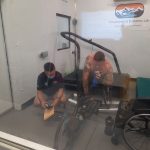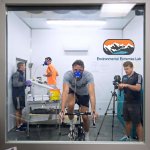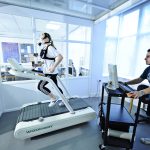The Problem
The Met Office announced a level 3 heatwave warning earlier this week and today could be the hottest day on record. The EEL team discuss the increasing trend in hot summers here in the UK and provide readers with research informed advice on how to keep the elderly free of heat illness. The three previous summers have been the warmest on record, with 2018 expected to be the hottest ever recorded. Researchers predict that this global trend will see further increases in the frequency and the severity of heatwaves, like that experienced throughout Europe in 2003, where the UK had 2000 excess deaths related to the heat. The majority of heat-related deaths during heatwaves are within the elderly population, with up to 92% occurring in the over 65’s.
Part of the reason for the disproportionate amount of deaths in the elderly is due to an ageing society. Between 1951-2011 there was an 80% increase in the number of people aged over 65 years. By 2040 it is predicted that 1 in 7 people will be 75 years old or older.
Secondly, aging negatively changes the way the body maintains heat balance. Healthy older individuals rely on a much larger percentage of their heart rate reserve to increase stroke volume in order to redistribute blood flow to the skin and thereby dissipate internal heat. Therefore, the burden placed on the heart is greater for the elderly than young adults. Leading to most deaths during heatwaves occurring due to cardiovascular complications in the elderly population. This scenario is further exacerbated in older populations with underlying co-morbidities.
Older adults may further intensify the problem as they may not feel thirsty until they are dehydrated. Avoiding levels of dehydration can be seen as avoiding reductions in blood volume. Decreased blood volumes lead to low blood pressure which then results in individuals passing out and injuring themselves. Furthermore, some medications further contribute to dehydration.
Research from our lab has also shown that older individuals demonstrate a reduced perception of heat. This can potentially lead to a delayed behavioral response (i.e. taking of layers of clothing or seeking shade) and increase the risk of heat related illness.
Be aware of the warning signs of heat illness
- Profuse sweating, heat rashes and being thirsty alongside feeling weak are the first signs to look out for. In some cases were exertion is high you may experience muscle cramps.
- Headaches, dizziness and feelings of nausea or actual sickness followed by severe fatigue can then develop, where the skin may be pale and cool to touch.
- When heat stroke develops, people will look flushed, often have hot and dry skin as dehydration stops sweating and will appear confused.
- Stopping sweating will cause your body temperature to become very high very quickly and with a more confused state over time, this indicates heat stroke has set in and medical attention is required urgently (Call 999).
The solution
Advice on how to enjoy the weather safely:
There are 6 key areas to consider when maintaining heat-related health.
- Hydration: drink refrigerated water/juice regularly throughout the day even if you do not feel thirsty, eat foods high in water content, fruit and salads. Avoid alcohol, caffeinated and sugary drinks.
- Indoor environment: the use of electric fans, keep windows open if safe to do so, keep curtains shut, It may be cooler outdoors in the shade than indoors. Take cool showers/baths or splash yourself with cool water
- Outdoor environment: seek shade and cooler refuges when out and about. Try to avoid the sun between 11am and 3pm.
- Clothing and protection: light and loose fitting clothes that allows for sweat evaporation. Apply sun screen and wear a hat when going outside in the heat.
- Medication: have a medication check with your G.P. as many medication will impact thermoregulation and may need to be adjusted during periods of hot weather
- Activity: keep activities of daily living to cooler parts of the day i.e. early morning late evening
- Thermal Comfort: remember people above the age of ≥55 may not feel uncomfortable or dehydrated during periods of hot weather, so try to put in place the above strategies because the body could still be at risk of developing heat illness.
If you think someone might be suffering from a heat illness call NHS 111 for advice.
If you suspect heat stroke then cool patient immediately and seek urgent medical attention CALL 999
For further advice look up the public health England’s beat the heat campaign (click here).
































July 27, 2018 at 12:51 pm
Excellent advice for everyone during this heat wave, Thank You.